 I speak as both a transgender woman and as an Anglican priest, currently serving as an Uniting Church Minister. As a Queer Christian I am not alone. There are many of us in Sydney, and across the world. For we, and queer people of other faiths, have always existed. We can be found in the Bible, throughout history, and we are very much alive today. Yet our lives are so commonly denied. For we are an inconvenient truth: inconvenient both to the Christians who oppose us, and inconvenient also to others, including some in the queer community, who would deny our lives. As such, we are at the heart of the continuing culture wars we seek to end today and we share in the solidarity and hope which this gathering embodies. Indeed, without us the battles we face together simply cannot be won. We so need each other and we badly need others to hear our voices and act upon them...
0 Comments
a reflection on the journey to genuine 'inclusion' for the Diversity & Inclusion Council of Uniting NSW/ACT
Thank you so much for the opportunity of sharing with you today. Let me first acknowledge the Gadigal peoples of the land from which I speak, and their elders past, present and emerging. I would also like to express my thanks for the work Uniting is already doing in terms of diversity and inclusion, including the vital encouragement this is to myself personally. For genuine visibility of our human diversity is so critical and enriching, as I know from my own experience and the huge number of people who contact me, from all kinds of places. joyfully receiving gifts One of the things I have learned from First Nations peoples is the importance of genuineness of spirit and intent. Back in 1986 in Alice Springs, Pope John Paul II put this well in sharing with Aboriginal and Torres Strait Islander peoples. ‘Until your gifts have been offered’, he said, ‘and joyfully received, the Church in Australia will not be that which Jesus Christ wants to see.’ That challenging truth remains central not only to the Church, but to all parts of Australian life. Until First Nations’ gifts have been fully offered, and joyfully received, with justice, then we will never be the country we can be. That must be the underlying theme of all we do in terms of diversity and inclusion. Yet those words apply more broadly, don’t they? Until the gifts of Asian, Pacific Islander, Middle Eastern, African, LGBTQ+ people, and all kinds of Australians have been offered, and – crucially - ‘joyfully received’, then we will not be what we can be. ‘Joyfully’ is a key adjective. What spirit and intent do we really have? If we approach inclusion mainly as an obligation (politically correct or otherwise), we will have missed the point. For one thing, anyone feels more likely to offer their gifts if there is likely to be a joyful reception. We will never maximise the capacity of any organisation, whether a church, a nation, or Uniting, if we do not joyfully embrace the gifts we are offered. What an opportunity we have as we emerge from, hopefully, the worst of what COVID-19 has done to expose the divisions and distinctions of wealth and power among us in Australia! To build back best, fully, and joyfully, enabling diversity and inclusion is vital. The character of our intent and its spirit is crucial. weak inclusion - as a noun In my experience, ‘inclusion’ can be a very weasel word, covering many continuing sins and PR appearances. Organisations have at least three approaches. The first is what I would call ‘weak’ inclusion. It is better than obvious exclusion but essentially about degrees of permission to belong. It is like a noun: it is somewhat fixed, concerned with quotas and boundaries, but really still involving social distancing rather than engagement. At times and in places, the Uniting Church exercises this kind of inclusion. You can belong as a minority, but are you really honoured, engaged, and joyfully received? That too is where many First Nations people were in Anglican circles in Southern Queensland, including in Anglicare, until we began our Reconciliation Action Plan a few years ago. medium inclusion - as an adjective Secondly, there are ‘medium’ approaches to inclusion. This is what I have experienced in moving into Uniting Church ministry. It involves a genuine welcome, with some affirmation, openness to involvement, and certainly much kindness. Whereas ‘weak’ inclusion is mainly being allowed to the table, this might even include being at the head of the table. Other than Anglo ethnicities, and LGTBQ+ and other networks are also taken with some seriousness. Inclusion becomes more like an adjective than a noun – it is about being inclusive, more dynamic than simply inclusion. It is where the Reconciliation Action Plan was in the Anglican Church Southern Queensland when I left, and maybe, where Uniting is right now. It is, however, only a happier, but not yet fully joyful stage. strong inclusion - as a verb A third stage of inclusion has a deeper spirit and intent. This ’strong’ stage is not about even genuine welcome, but about revealing the gifts of all. It includes affirmation but is really about celebration, led by everyone in our diversity when we are all truly empowered. It is about inclusion as a verb: about active practice day by day; including like Uniting, as a dynamic community of living and belonging. It is also wonderful for any organisation. For we no longer have to work hard at showing we are diverse and inclusive. We demonstrably are. It is our very DNA. Others see it, which also saves many promotional expenses! The Uniting Church aspires to this, and at times manages it. The most visible sign is the Covenant with Uniting Aboriginal & Islander Congress - although, even there, questions remain, including about resourcing and how voices are actually heard and make a difference. Yet the Uniting Church as a whole is not there yet. I sense however that Uniting can move into at least some kind of ‘stronger’ inclusion, where all levels of staff and operations see it as their own work. That is another major shift, but ultimately, as it becomes more natural, it in fact requires less work from advocates and leadership than ‘weak’ and ‘medium’ inclusion – for it belongs to everyone, when everyone truly belongs. True including thus also leads on to expansiveness. sea-change We live in the tag end of some frankly rubbish times, when the very dignity of some human beings has been under question. We have major policies of exclusion in Australia, including towards First Nations claims for justice, towards refugees, some migrants and the poor. Currently, we also have hurtful bills of religious discrimination in federal and state parliaments. Yet my belief is that these are rotten but passing times. I see the journey towards Australian diversity and inclusion as like a sea-change. The waves come in at different speeds. Sometimes they rise high: as with the 1967 Referendum, the Apology to the Stolen Generations, Marriage Equality, and so forth. At times they fade away and we think the tide has gone. Yet it will assuredly return. The key thing is to hold faith and make ready for the next big wave of Australian diversity and inclusion. It will come, and those who are prepared can surf it. Others who do not prepare will flounder. For there is, let’s face it, no vibrant and really sustainable future for Australia without renewing our multicultural identity. Uniting is well placed to seize that time when it comes, if it continues to move more deeply into diversity and inclusion. So, May God bless us all in this exciting journey! I am deeply humbled and thrilled to announce that I am again being called to ministry in Sydney - as the next Minister of Pitt Street Uniting Church. This is a wonderful high profile progressive faith community which gathers on Gadigal land in the heart of Sydney’s CBD. After much reflection and careful discernment with the Uniting Church, Penny and I believe that this is the very best way in which I can serve with others in nurturing faith, love and hope in the next few years (from 1 March 2021) - as well as, very happily, being again close to family in Australia. I extend my thanks and blessings to all with whom I have journeyed in the past and to those I look forward to joining soon...
One of the most encouraging aspects of the Australian theological scene is the work of the Australian Collaborators in Feminist Theologies. Based at the University of Divinity, Melbourne, this vital network has considerably inspired and supported me in recent times and will, I hope, continue to grow in strength and influence. Personally I am thankful to this project and its leaders to have an essay (entitled 'From Footballs to Matildas? - Gender Diverse People and Theological Game Change') included in the forthcoming book Contemporary Feminist Theologies: Power, Authority, Love - part of Routledge's 'Gender, Theology and Spirituality' series. I am also pleased to share in the Horizons series of online conversations which the Collaborators run on a monthly basis. This month, I am myself a focal point, chatting with Dr Cath McKinney about intersectionality, not least the challenges and opportunities of gender diverse people within feminist developments (link to event here). Here below - and at this link - is a short reflection to stimulate thought and discussion...
Above is a prayer I have written to mark the annual Coming of the Light festival (1 July) and for use of other occasions. It is shaped with thanks to Torres Strait Islanders with whom I have walked/continue to walk, with appreciation of their deep faith, spirituality and commitment to justice and diversity. Living strongly in my heart is also the visit, with NSW Ecumenical Council friends, which I paid several years ago to the Torres Strait. Torres Strait Islanders are often little known to many Australians, never mind the rest of the world, and literally and metaphorically missed off maps of the nation. Yet their history, culture and life today are rich and life-giving. They also continue to challenge us all to face up to the continuing effects of colonialism, injustice and climate change (which impacts on the Torres Strait so strongly). I am particularly grateful to walk paths of just Reconciliation with Aunty Rose Elu and the non-geographical Anglican Torres Strait Islander parish in Brisbane. May this year's Coming of the Light further enrich the people of the Torres Strait and deepen our solidarity.
Speaking before this weekend's Sydney Mardi Gras, the performer Courtney Act went to the heart of today's political and cultural struggles:
People having the opportunity to … picture themselves in someone else’s experience – [It] fosters a sense of empathy. Empathy is what is missing right now in the world. We’re yelling from opposite sides of the room and nothing’s getting done. (Guardian interview 23 February 2020) Sadly, but probably accurately, Courtney's view is also that whilst “the world has become more respectful of diversity in general … Australia is still definitely behind the eight ball.” How do we move beyond this? 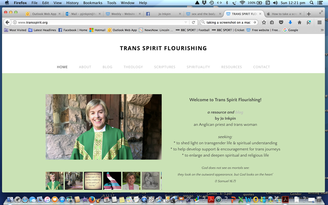 Trans Spirit Flourishing is the name of a new website I have produced, which seeks to shed light on transgender life & spiritual understanding and to help develop support and encouragement for trans people in our varied journeys. For spirituality is essential to human beings but we have often used it ignorantly. The unnecessary and deeply hurtful Australian postal survey on marriage equality has sadly demonstrated how many Christians are still not aware of the devastating damage which has been done and which continues to be inflicted on LGBTI+ people by ideas and practices which we desperately need to leave behind. As a result the deep spiritual life and insights of so many LGBTI+ people is often neglected. For transgender and gender nonconforming people this is a particular tragedy as our journeys are so much bound up with exploring and expressing our deepest identities. Things are changing however, even if some of us will no doubt continue to bear the pain of the struggle. Trans spiritual flourishing for some sections of religious faiths may never happen, but who knows - God is amazing in surprises! However trans spirit flourishing can begin, or develop further, right and here and now, for everyone . My hope is that this resource can add, and point, to sources of light and encouragement - both, and above all, for those struggling with gender identity themselves, and for allies and those genuinely seeking understanding. We are living through challenging times, with many demanding issues of ecology, reconciliation, peacemaking, poverty, and care for refugees and other vulnerable people. Gender diversity has so often been a battlefield. May we make of it a source of grace for the larger journey of healing and wholeness for all. 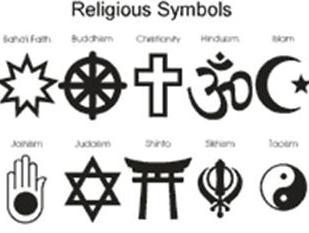 The other evening I had the pleasure of being part of this year's inter-denominational service of commissioning of Religious Instruction (RI) teachers for Toowoomba. It was a typically up-beat and prayerful occasion, with fine inputs from local school principals and Stephen Urmston, the new Anglican Children & Family worker at St Barts Toowoomba. I was moved again by the genuine care and loving commitment of those involved in offering RI to children in our local state schools and do believe that, in some ways, they enhance both the spiritual and wider relational life of the children and adults they share and meet with. However... One of the great joys of February 29 is that it reminds us that life cannot be fitted into a system. Something - thank God - always bursts out. What good news is that for all that is weird and wonderful in us, our lives ans relationships! The Gregorian calendar does its best to calibrate and control us. Yet having an extra day every four years can't even fix time then. So, on 29 February, we have a great opportunity really to celebrate all that is weird and wonderful in ourselves, in others, and in the amazing diversity of our world - vive la difference. So what will you do today to make it a weird day, with all the weird people and places you know?
 It was a great delight last week to lead the Grafton Diocese's clergy retreat. The diocese has gone through a number of difficult trials in recent years (especially in wrestling with horrific child abuse issues) but it includes a wonderful variety of people and places, led by its fine bishop Sarah Macneil. An area of fabulous country, rivers, beaches, lifestyles and pursuits, it has been very successful in holding together a wide diversity of Anglican outlooks whilst pursuing new initiatives in mission and ministry. May God bless it richly in brighter days ahead and strengthen us all in learning from one another. |
AuthorJo Inkpin is an Anglican priest serving as Minister of Pitt St Uniting Church in Sydney, a trans woman, theologian & justice activist. These are some of my reflections on life, spirit, and the search for peace, justice & sustainable creation. Archives
July 2024
Categories
All
|
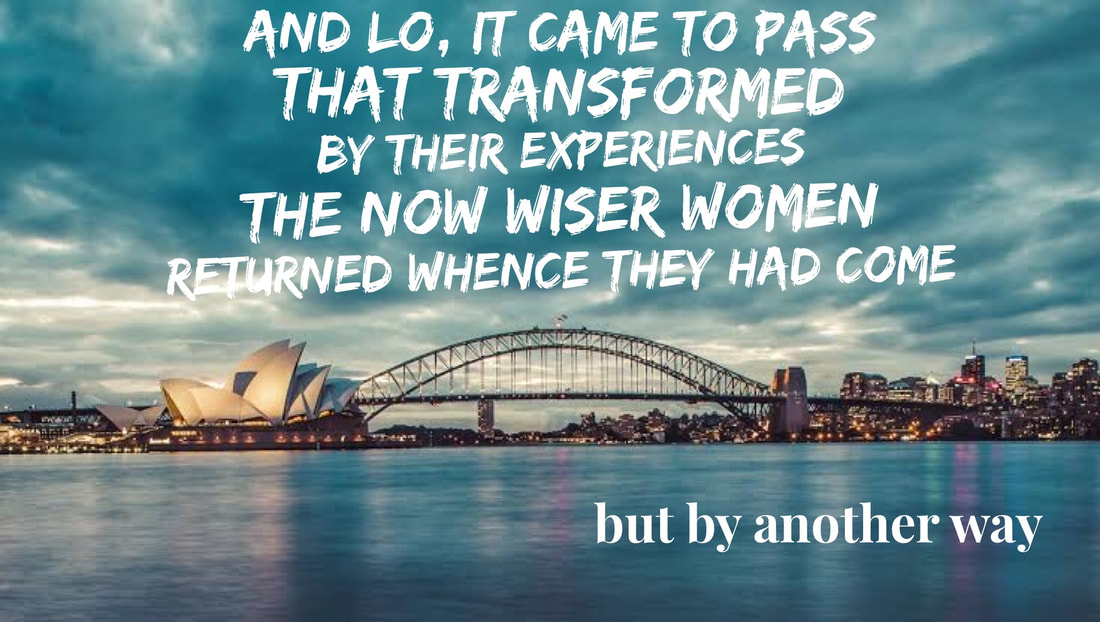
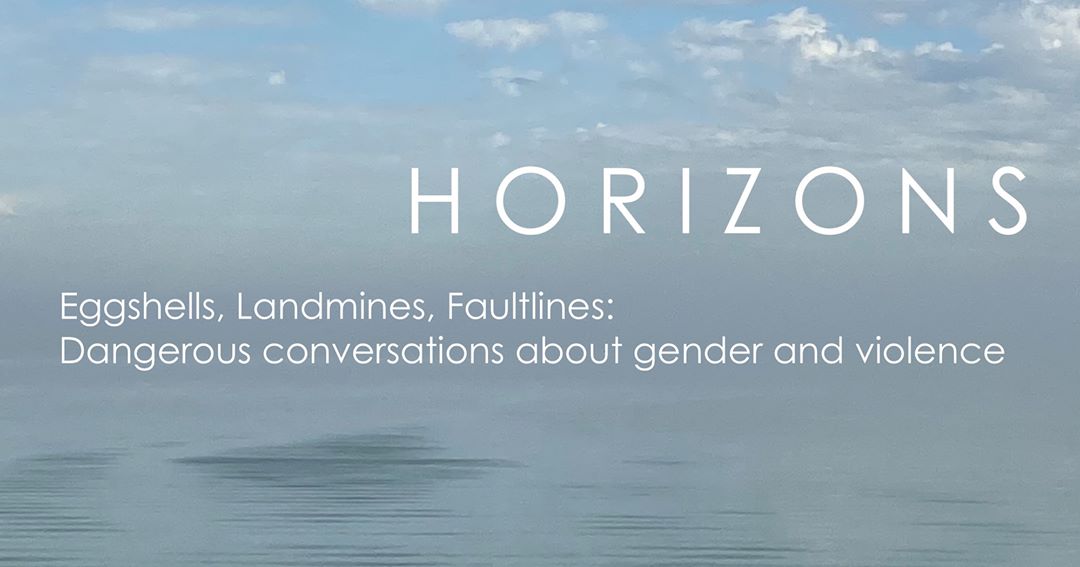
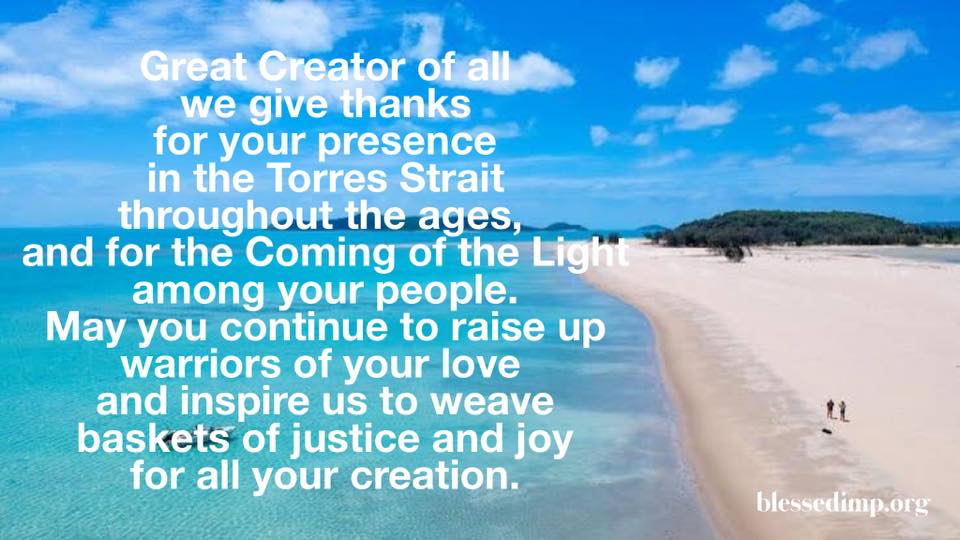
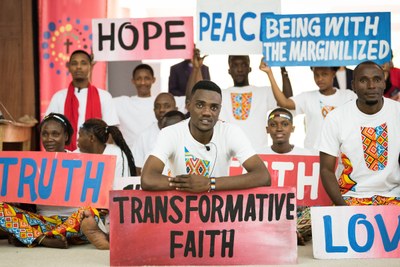
 RSS Feed
RSS Feed